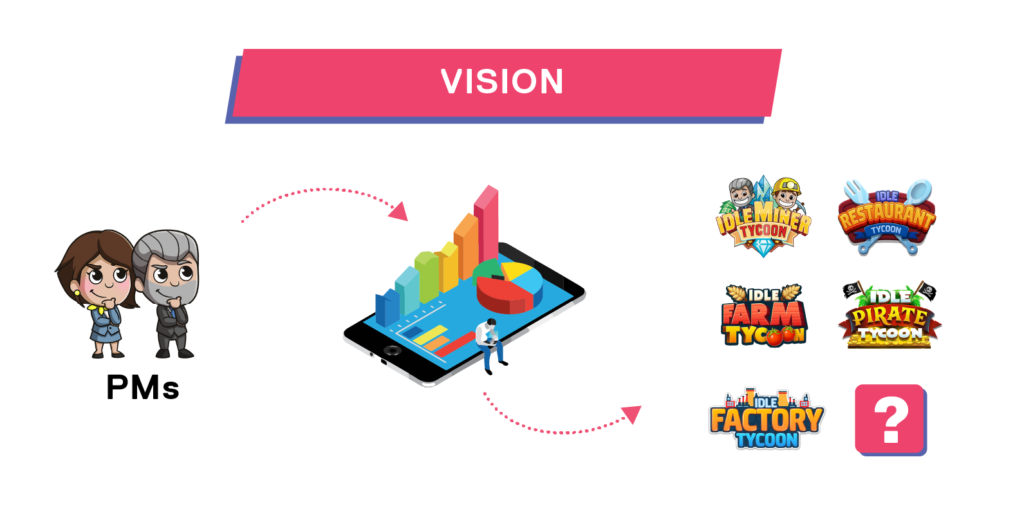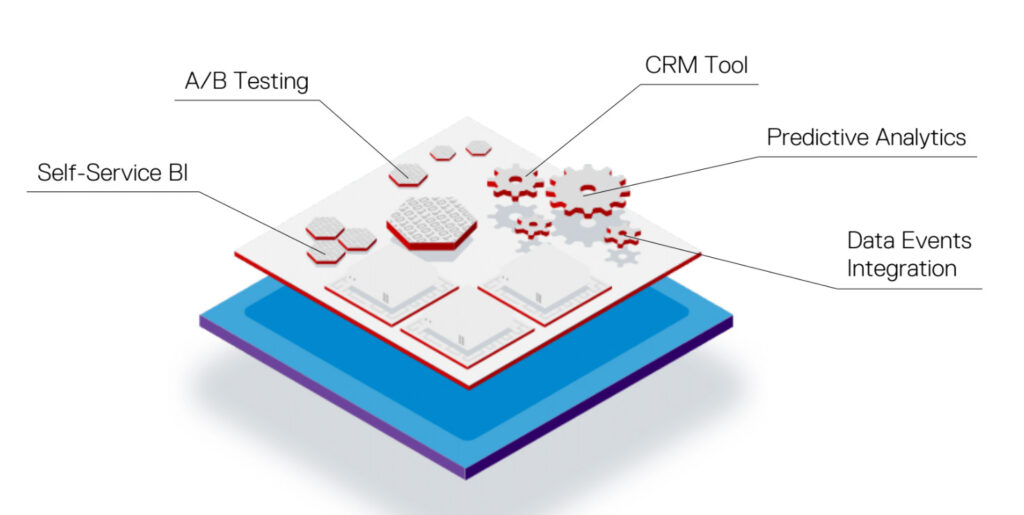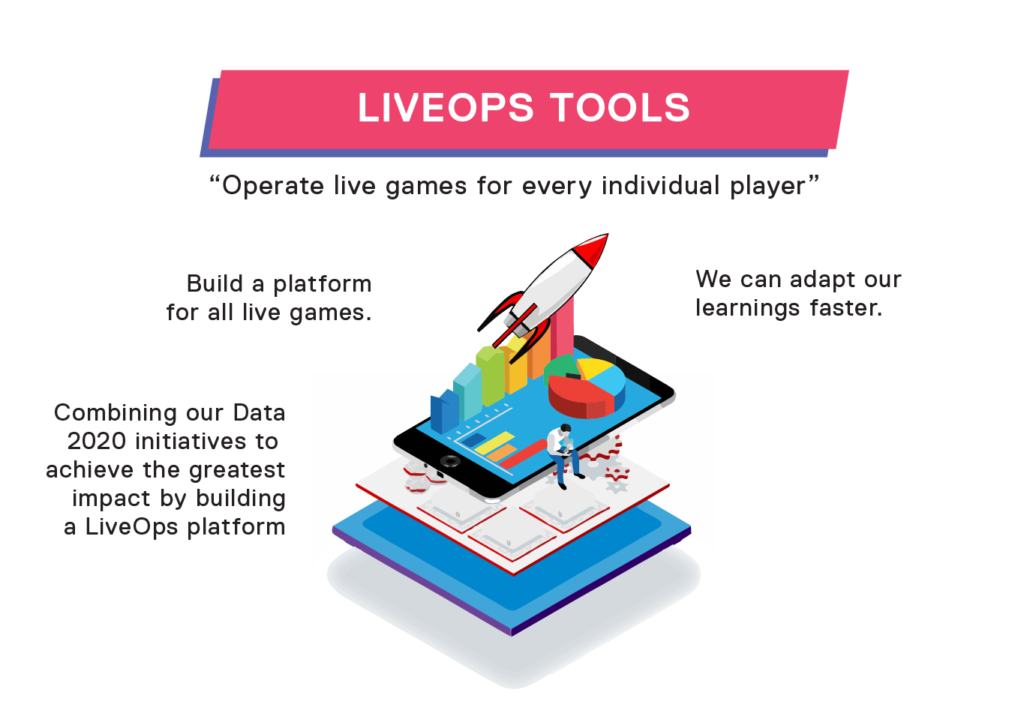Mobile gaming is a vibrant and rapidly changing industry. Not only did it alter the way we play games, but it has also revolutionized the way games are developed. Historically, games used to have big initial releases with no further development or updates, confined to one cartridge or disk, and no chance to fix bugs or problems after the game was out on the market. But with modern mobile games, it’s possible to continuously improve the gaming experience.
Understanding games not as a fixed product but as a service has given us the opportunity to provide new content and updates to players after the release. It has also made it possible for developers to listen to what players want and need, and to implement their ideas into the game. One of the top buzzwords in this context is LiveOps. But what does it mean?
Christian, our Head of DevOps at Kolibri Games, is leading the development of our new LiveOps platform and offers a look into this project:
In a nutshell, LiveOps means operating a game after it has been published. Instead of developing, releasing a game, and moving on to the next project, doing “live operations” on it, enables us to continually enhance the gaming experience. By improving the game, updating it, introducing new features, and even live events to it, the game keeps evolving long after the release. Doing LiveOps literally means keeping a game alive!
From weekly updates to live events
We strive to make our games better and more engaging, listening to the player’s feedback and data we gather to become the most player-centric company in the world. We introduce new features and bug fixes on a weekly basis ensuring a continuous evolution of our apps. So far we are using LiveOps to ship regular updates, run basic time-limited events, and conduct A/B tests.
From the data we gather, we decide on what new content we want to implement:
We develop the assets, create the code, and release an update, informing our players of special events through push notifications. The players then have to update the game to access the new content. This process, of course, takes time and, when a feature is shipped, it’s out there and only reversible or fixable with another update.
We’ve realized that there are a few problems with this release schedule: Even though we are absolute pros at shipping updates, the adoption of a new feature takes a lot of time – and time is one of the most valuable resources in mobile game development. From development over roll-out to complete integration, the release cycle is taking at least three weeks. In a dynamic and competitive market as mobile games, this is a long time.
Take a look at the creative process behind our infamous cheese mine right here
We want to make the games you want
LiveOps is not a trend but a necessity for us. The weekly update schedule works for our event mines in Idle Miner Tycoon – those are events that can be planned ahead and are supposed to be available to all players at the same time. But of course, that’s not the only thing we use LiveOps for.
Data and our ability to interpret it make the biggest difference between how games used to be developed and what we can achieve now. When our data tells us that our players want a certain feature, we can use LiveOps to deliver it quicker and, in certain cases, tailored to different types of players. That’s why last year we launched our project Data 2020 which now provides the basis to improve our LiveOps.
The goal of Data 2020 was to put the tools in place that would let us use data for more of our product decisions than ever before. All the player feedback we get through social media or by mail is extremely helpful for detecting faults and helping us improve the game. But the silent majority of our players tell us what they like or don’t like simply by playing. Direct contact with the community is something valuable we will always rely on, but in addition, the data from our players can show us where we can improve their individual gaming experiences.
In the long term, this not only means engaging players for longer and offering them the best player experience possible, but also perfecting our monetization practices. To reach this goal we need to deliver a gaming experience that resonates directly with the wishes and desires of our players. To do that, we need the right tools:
To run LiveOps and implement the insights we gain from the data as well as player feedback, the tools that exist so far are helpful but always restrictive at one point. They don’t offer all the capabilities we need or can foresee needing in the future. Shipping updates has proven to be successful, but we wouldn’t be at this point if we would rely on what already exists instead of always striving for the next level by developing cutting-edge tech solutions.
This is where our platform project LiveOps 2021 comes in.
The goal: To develop a platform where we can dynamically personalize the game for every player at every moment.
How to develop your own LiveOps platform
So who knows best what we need and has a talented team of developers on hand?
Yes, it’s us! (and Spoiler: It could also be you!) After determining that there is no tool for our needs in the market, we decided to build our own tool to reflect our needs. Our goal is to create a platform that can do even more than we already are capable of: To establish new, more powerful features using LiveOps. This is a challenge as well as a great opportunity. We want to develop something completely new that is tied to our use cases and all future games perfectly.
We have millions of sessions daily, so our architecture and infrastructure have to be able to handle this volume and be reliable. There are lots of interesting technologies available, and we have to pick what fits best. It’s an exciting project because we are a small and agile team, working closely together with short communication flows. Our plan is to see what well-executed LiveOps can unlock to bring our games to the next level. In the next months, we will see how far we can take our technology.
Be part of the journey
Does this sound exciting to you? We are looking for Backend Engineers and Fullstack Developers to support Christian and his team. This project is a great opportunity to join Kolibri Games. Our approach to development offers ownership, and we support personal and autonomous decision-making. All input is appreciated and valued. If you are excited to innovate and motivated to create cutting-edge technology, and even worked on projects with a similar size before – check out all open positions here.


